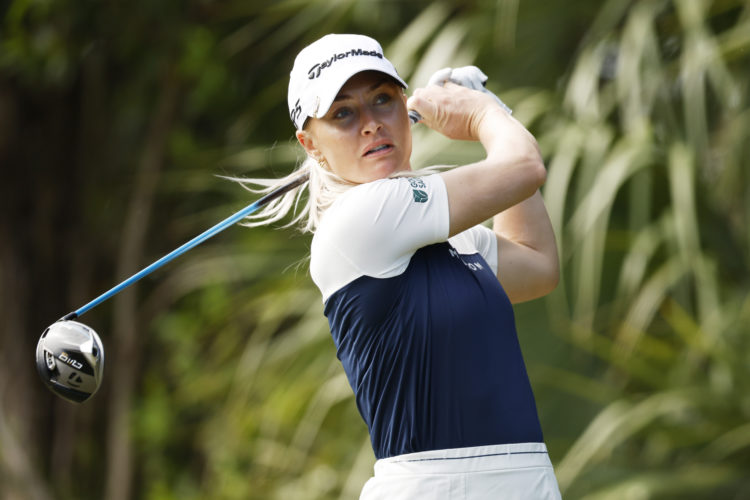As the LPGA season opener approaches, professional golfer Charley Hull has found herself at the center of a storm of criticism regarding her training routine. Hull, a seasoned player on the LPGA Tour, has achieved a great deal of success throughout her career, but her preparation for the 2025 season has come under scrutiny from fans and commentators alike.
Known for her powerful game and impressive skill set, Hull’s response to the recent wave of questioning has sparked conversations not only about her training regimen but also about the broader relationship between athletes and their fans in the world of professional sports.
The Criticism: Questions About Preparation
In the days leading up to the LPGA season opener, fans began to voice their concerns about Hull’s commitment to her preparation. Some pointed to her social media posts, where she had shared pictures and videos from various activities unrelated to golf, suggesting that her focus on the game was waning. Comments on her posts varied from encouraging to critical, with some suggesting she was not dedicating enough time to honing her golf skills.
For many professional golfers, the off-season is a crucial time to focus on their physical and mental game, fine-tune their technique, and address areas of weakness. The LPGA season opener typically marks the start of a fresh competitive year, and many fans expect to see their favorite athletes in peak physical form. This expectation has become part of the modern sports landscape, with the rise of social media bringing fans closer to the daily lives of athletes, leading to more public scrutiny.
Hull’s Response: Setting the Record Straight
Rather than ignoring the comments or letting the negativity slide, Charley Hull decided to address the concerns head-on. In a candid response via her social media channels, she clarified her approach to training and the importance of balance in her life.
“I’ve seen some of the comments about my preparation for the upcoming season and I want to set the record straight,” Hull began. “I take my career and my preparation very seriously, but that doesn’t mean I live and breathe golf every single moment of every day. Like any athlete, I need time to recharge, focus on my well-being, and spend time with my family and friends.”
Hull went on to explain that her off-season routine includes both physical and mental training, but she also emphasizes the importance of taking a break from the pressures of the game. “There’s a fine line between pushing yourself too hard and knowing when to step back. I work on my fitness, practice my swing, and keep my game sharp. But I also believe in the value of rest—mentally and physically.”
The golfer also highlighted that her off-season activities might not always appear to be directly related to golf, but they are part of a holistic approach to maintaining a healthy body and mind. Whether it’s engaging in outdoor activities, spending quality time with loved ones, or traveling to new places, Hull argued that these experiences contribute to her overall well-being and help her stay motivated and energized for the competitive season.
The Importance of Mental Health in Professional Sports
Hull’s response shed light on an often-overlooked aspect of professional athletics: mental health. Athletes, especially in individual sports like golf, are under constant pressure to perform at the highest level, and this can take a significant toll on their mental well-being. While physical training is vital, the mental aspect of the game is equally important.
In recent years, there has been a growing conversation surrounding the mental health of athletes, with stars like Simone Biles, Naomi Osaka, and Michael Phelps speaking out about the pressures they face. Hull’s statement aligns with this shift in awareness, emphasizing that maintaining a healthy mindset is just as essential as physical training.
“Golf is as much a mental game as it is a physical one. If I’m not in a good place mentally, I’m not going to perform at my best, no matter how much I practice. Mental well-being is key to success, and taking time to disconnect from the game is just as important as the time I put in on the course,” Hull added.
By sharing this perspective, Hull has become part of a larger conversation about the need for athletes to prioritize mental health. As more professional sports organizations acknowledge the importance of mental wellness, the stigma surrounding self-care and rest is slowly but surely being broken down.
The Role of Social Media in Modern Sports
Another important factor that has come to the forefront in Hull’s response is the role of social media in shaping public perceptions of athletes. In the past, fans had limited access to their favorite players, and media coverage was often controlled by sports outlets and journalists.

